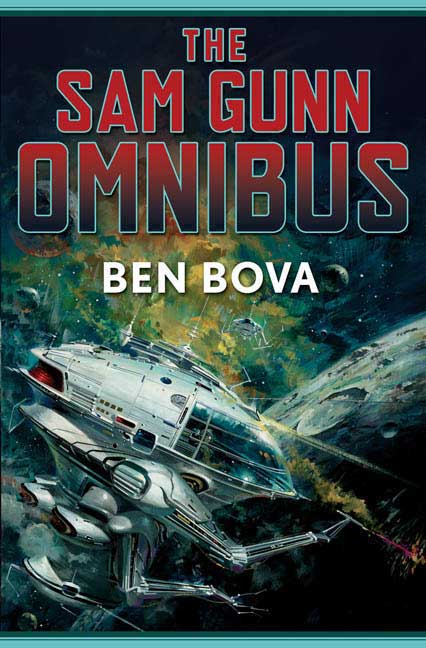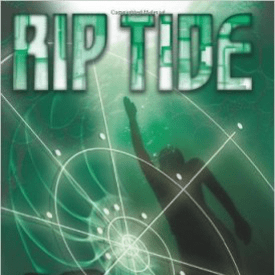 One of the primary benefits of reviewing books on a blog is that people will work hard to get you to give their book a chance. Now if you have a big publisher behind you, the stress of marketing is lessened by their salaried employees whose job it is to contact their list of book bloggers with well written letters or press releases detailing what the book is about and how they can get a chance to review it. In my experience you don’t need to have the backing of a massive multi-national corporation to reach out to book bloggers. I have seen professional level communications from small press publishers such as Elsewhen Press and World Weaver Press. The real problems occur with self-published authors.
One of the primary benefits of reviewing books on a blog is that people will work hard to get you to give their book a chance. Now if you have a big publisher behind you, the stress of marketing is lessened by their salaried employees whose job it is to contact their list of book bloggers with well written letters or press releases detailing what the book is about and how they can get a chance to review it. In my experience you don’t need to have the backing of a massive multi-national corporation to reach out to book bloggers. I have seen professional level communications from small press publishers such as Elsewhen Press and World Weaver Press. The real problems occur with self-published authors.
I have a read a handful of good self-published works and a couple of great ones. Most, however, have been bad. In fact, I am starting to notice common issues that are red flags that the story is going to be terrible long before I read the opening line. These flaws range from a bad cover photo, unchecked political bias in the description and unacceptably high price. The very first alarm, however, is in the initial email asking for a review. I kid you not, here is an example of an email I once got from a self-published author wanting me to review their novel:
Do you want to review my book?
John
Names have been changed to protect the innocent, but this email is real. An extreme example, I know, but still useful in making my point: aspiring authors need to work on their communication skills. Yes, the Internet has made communication easier, but that doesn’t mean our communication skills have improved with it. Why should I review John’s book when I don’t even know what it is called? I run a blog on alternate history and related genres, do I even know if his book is relevant to the subject? Where can I buy this book? What does the cover look like? Who the hell is John?
Needless to say I deleted the email and moved on. Perhaps I should have taken some pity on poor John, but there are a lot of other authors who know the proper way to communicate with a book blogger about a review. In my humble opinion the best emails are the ones that look like a cover letter you send with your resume when applying for a job. The author provides his or her full name (or at least pen name they are using) along with their contact information and links to their site. This can go pretty much anywhere, although at the end or in the body of the email is best.
The email starts with a short introduction which offers the blogger the opportunity to receive a free copy for review (free is important, one author once demanded I buy the book). The next paragraph describes the story and really tries to sell me on the book. Let’s face it, that is what you are a doing as an author. You are trying to sell your book and you think this person who you are emailing you is going to help. If you can’t sell it to them, what chance do you have on the general public?
For the next paragraph, you need to describe yourself. Is this your debut novel or are you a veteran author? What are the names of your previous works and what did people think about them? Is writing you day job or are there other important aspects to your life that you want people to know about? Finally, end with a conclusion, thanking the blogger for their time and letting them know you are available for interviews or guest blogging. This is especially important and, although I may only be speaking for myself, it is nice when someone else does the work for a change.
I realize marketing is hard work, but the good thing about emails like the one I described above is that with a few small changes you have a form email that can be used for every book blogger you are contacting. Just make sure you double check everything before sending it. It can be very annoying to accidentally call a guy “Alison”.
Trust me, first impression go a long way, even through emails. Spend a little extra time doing it right and hopefully your due diligence will be reflected in your writing.











You make some valid points. The lack of professional conduct in Emails is indicative of the lack of respect for others. Rhetoric and Persuasion are key to getting what you want. A standard query is simply a way of showing that you have respect for the person who you are trying to get something from. Just a little respect would be nice.
Although I have a similar reaction as C.E. Martin to demands for extraneous information…I don’t like giving out a lot of info… I’ve come to realize that it’s a human nature thing to want to connect with people on a personal level. I don’t always agree with the methodology…agressive demands for a peice of me…but I think it’s part of the process of having a work pique the reader’s interest. You read something and the first thought is: Who is the person?
C.E. is right about how hard it is for new authors. “What else do ya got?” Uhhh…hold on…errr…give me a sec…I’ll think of something. Seems like a good work my get you somje attention, but it’s never enough in itself.
Excellent points, but I have to ask- why is it important for an author to give their credentials? I see this requested most everywhere. How is an aspiring first timer ever going to get their foot in the door? And should an established author get a free ride, so to speak? Just because they’ve written other stuff, shouldn’t the same rules of does-it-sound-any-good apply?
I hate having to toot my own horn (not that I have even a page of notes to play so far). I’d much rather talk about my writing than myself, but it seems publishing is rampant with demands for my personal information and background. The Author Page (ugh), queries, book review requests… please, just judge my pitch on its own merits, and not mine.
If an author hasn’t written anything before, they obvious don’t have to give a list of their work. I personally, however, still want to know something about the author, especially if I want to do an interview with them. If I think they are likely going to be an interesting person to talk with I am more likely to extend an invitation. Furthermore, someone with knowledge or experience about what they are writing can be a sign that their story will be more plausible and enjoyable. I realize not many people are intrepid space explorers (yet), but perhaps someone with a degree in astronomy or a career in aerospace engineering might be able to craft a more plausible space opera than say someone who took a class in underwater basket weaving. I realize this can backfire (like how J.K. Rowling doesn’t use her first name on her books) , but I try hard not to judge anyone’s book based on who they are, although I can’t speak for everyone on that.